Series: Focus on Play
A New Focus for Familiar Card Games
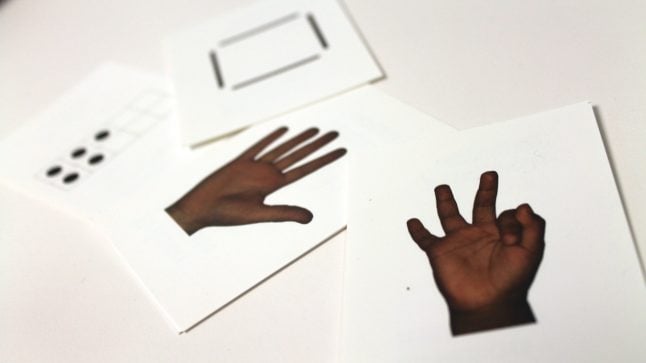
Familiar, simple-to-learn card games help young children build their understanding of early math concepts such as cardinality and composing and comparing numbers. Using quantity cards with pictures when playing card games, rather than numerals, increases children’s attention to numerosity and adds novelty to old favorites like Go Fish or Memory.
What’s so special about quantity cards?
Quantity cards have pictures of small sets of dots, finger patterns, and 5- and 10- frames showing numbers from 1 to 10. Quantity cards require children to look at a picture and say how many they “see.” This attention to numerosity builds children ability to subitize. That is, children will instantly see a small quantity and label it with a number word. Most preschoolers will recognize three fingers without counting, “one, two, three.”
Matching quantities such as dots and fingers develops ideas about equivalence. Though these two cards look quite different, they are the same in one important way—their numerosity. Experience recognizing how amounts that look different can actually be equivalent numbers helps children abstract the “three-ness” of three when playing card games.
Most importantly, quantity cards helps children build number relationships. Numeral cards present each number separately as a monolithic entity. Quantity cards depict numbers in relationship to other numbers. For example, the picture of 4 fingers also shows the thumb tucked away, allowing for children to think and talk about how 4 is one less than 5. The dot patterns have clusters of dots, helping children to see that six can be thought of as 3 and 3, for example.
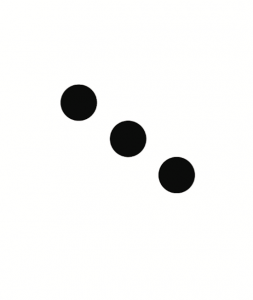
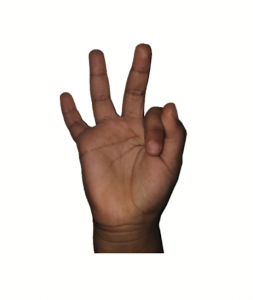
Who can play these games?
These games are for all ages. While the numbers only go through 10, the different representations gets children and adults alike thinking and talking. Watch this video of a mom and son playing the game Capture together. Beyond the laughter, you’ll hear lots of math talk that is natural and playful.
How do I get started?
Print our quantity cards on sturdy paper and cut them to make a beginner deck of 20 cards; see link below. That is a perfect place to start with your preschooler or kindergartner.
Or make your own dot cards with index cards and dot stickers or dot stampers. You can experiment with different dot arrangements — dice pattern, shapes, and lines. See our dot pattern chart for ideas. Using dots of two colors helps children to see subgroups within a larger quantity such as two blue and two red dots that compose a set of four dots. Having a variety of configurations strengthens children’s ability to visualize numbers in their minds.
Have fun playing your favorite game such as Go Fish or Memory with quantity cards. Try one of our games, such as Capture. (Or learn a few math tricks with kids to get them having fun while learning.) The important thing is to watch and listen as children play games. You will find that there is a lot to talk about when the focus of early math games is on recognizing, composing, and comparing quantities.
Download
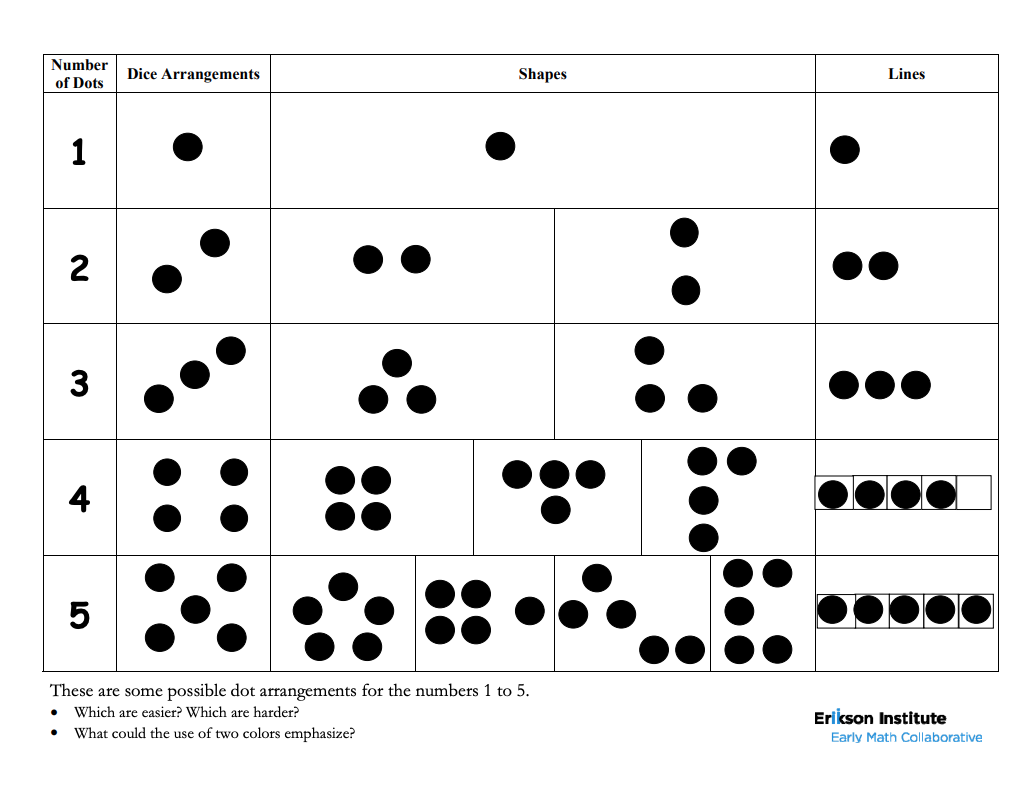
Dot Pattern Chart
To make your own quantity cards, use this chart about dot patterns for ideas about various dot arrangements to further children’s thinking. There is a lot to think about with just dots!
Dot Pattern Chart
Related Ideas
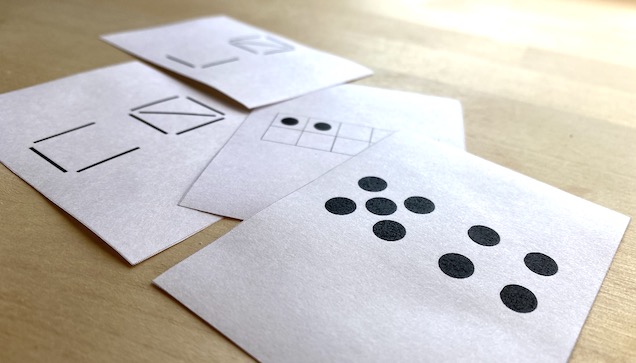
Quantity Cards
These Quantity Card downloads are available and cater to different skill levels and ages. They include a variety of pictures or “suits” since matching quantities such as fingers and dots can help develop ideas about equivalence.
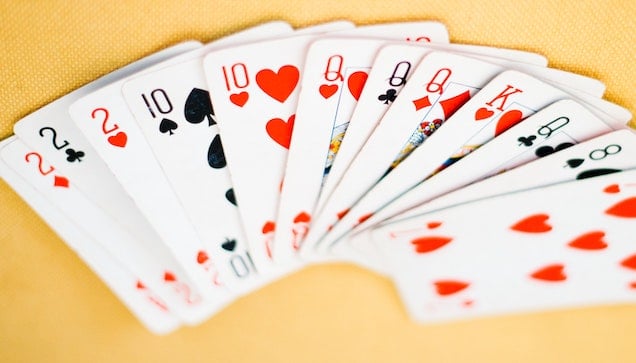
How to Adapt Math Card Games to Children’s Skill Level
This article and accompanying downloadable instructions explore common card games that can be played and revisited as well as adapted to children’s own math skills as they develop over time.
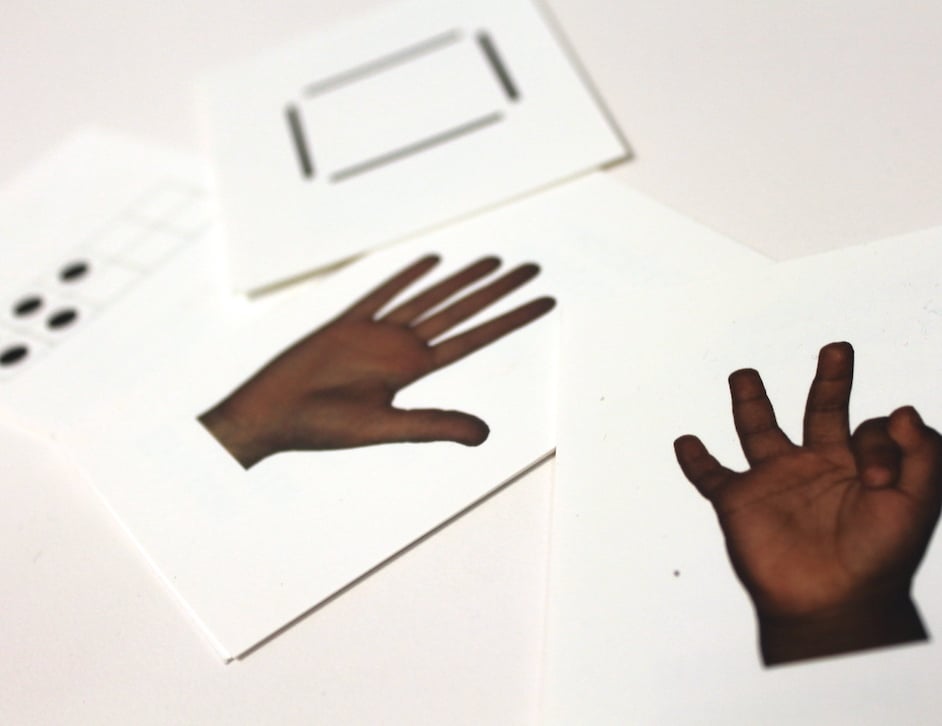
Get downloadsJoin the website
Want free printable activities and card sets? Join our website (or log in if already joined) to unlock much more.